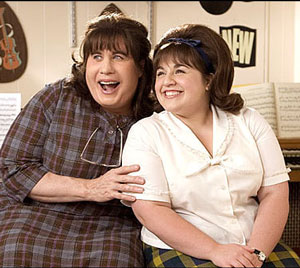Very interesting article in the Washington Post, Answering to No One, by Walter Mondale (Jimmy Carter’s VP). He gives a history of the role of the vice president, and then comes to Dick Cheney. His words affirm what I’ve felt for a long time.
1 CommentCheney set out to create a largely independent power center in the office of the vice president. His was an unprecedented attempt not only to shape administration policy but, alarmingly, to limit the policy options sent to the president. It is essential that a president know all the relevant facts and viable options before making decisions, yet Cheney has discarded the “honest broker” role he played as President Gerald Ford’s chief of staff….
Through his vast government experience, through the friends he had been able to place in key positions and through his considerable political skills, he has been increasingly able to determine the answers to questions put to the president – because he has been able to determine the questions….
I’ve never seen a former member of the House of Representatives demonstrate such contempt for Congress — even when it was controlled by his own party. His insistence on invoking executive privilege to block virtually every congressional request for information has been stupefying – it’s almost as if he denies the legitimacy of an equal branch of government. Nor does he exhibit much respect for public opinion, which amounts to indifference toward being held accountable by the people who elected him.
Whatever authority a vice president has is derived from the president under whom he serves. There are no powers inherent in the office; they must be delegated by the president. Somehow, not only has Cheney been given vast authority by President Bush – including, apparently, the entire intelligence portfolio – but he also pursues his own agenda. The real question is why the president allows this to happen.



 Last Saturday Pam and I saw the movie/musical “Hairspray.” My goodness, that was fun! After the opening song by Tracy Turnblad, “Good Morning Baltimore,” I turned to Pam and said, “This is going to be a good movie.”
Last Saturday Pam and I saw the movie/musical “Hairspray.” My goodness, that was fun! After the opening song by Tracy Turnblad, “Good Morning Baltimore,” I turned to Pam and said, “This is going to be a good movie.” I went to the doctor yesterday, the first time since I turned 50. Visits to the doctor are going to be decidedly less fun than in the past. As if they’ve ever been fun. Maybe fun, if you compare them to going to the dentist.
I went to the doctor yesterday, the first time since I turned 50. Visits to the doctor are going to be decidedly less fun than in the past. As if they’ve ever been fun. Maybe fun, if you compare them to going to the dentist.
 After church Pam and I ate at Biaggis, a wonderful Italian restaurant. We go there maybe once a year, and often in conjunction with our anniversary. The place is expensive. Our bill, before tip, was an uncannily even $50. I had Shrimp Oregonata, which I order nearly every time.
After church Pam and I ate at Biaggis, a wonderful Italian restaurant. We go there maybe once a year, and often in conjunction with our anniversary. The place is expensive. Our bill, before tip, was an uncannily even $50. I had Shrimp Oregonata, which I order nearly every time. Connor started crawling two weeks ago, and now, he tools around everywhere. Getting into everything. Grabbing. Touching. Inflicting no small amount of anxiety on our cats. He hasn’t caught Jordi or Molly yet, but it’s just a matter of time before he sneaks up on one of them while they’re sleeping. Molly was sleeping peacefully when a baby hand touched her tail. She bolted with maximum haste.
Connor started crawling two weeks ago, and now, he tools around everywhere. Getting into everything. Grabbing. Touching. Inflicting no small amount of anxiety on our cats. He hasn’t caught Jordi or Molly yet, but it’s just a matter of time before he sneaks up on one of them while they’re sleeping. Molly was sleeping peacefully when a baby hand touched her tail. She bolted with maximum haste. 


